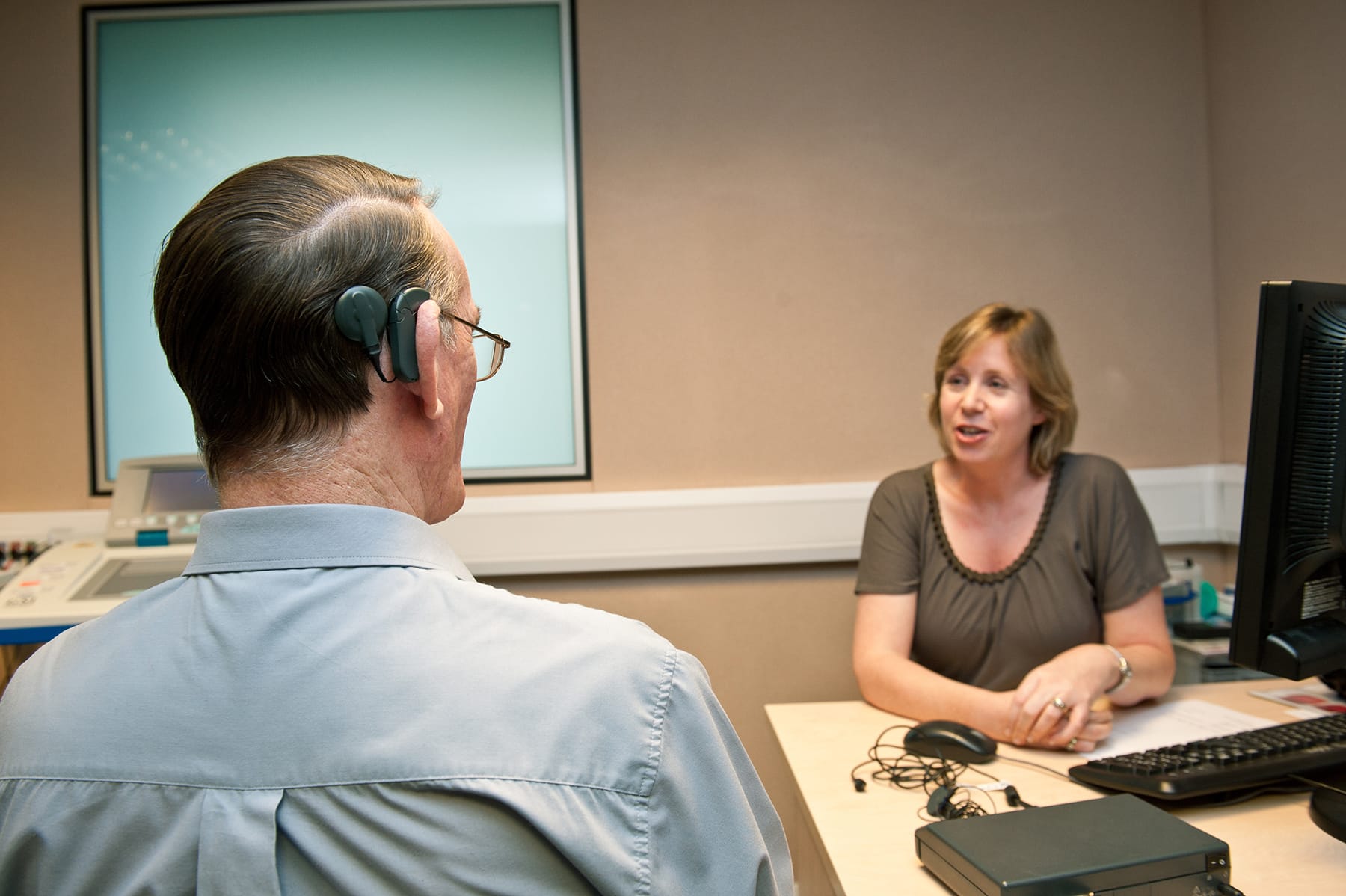
MED-EL
Published Jan 02, 2015 | Last Update Aug 29, 2024
How to Prepare For Your Third Cochlear Implant Mapping
If you’ve recently received a cochlear implant, the first few months will be filled with lots of new experiences and changes. That’s because your brain is learning how to interpret the information it receives from a cochlear implant.

In many countries, after two months of hearing with a cochlear implant it will be time for your third cochlear ipmlant mapping.
A third mapping appointment is often important because it might seem like the map that your audiologist programmed during your first fitting or second mapping just doesn’t sound like it did a few weeks earlier.
To give you an idea of what will happen around this time, here’s some information about the sounds you might hear and what you can expect during the actual cochlear implant mapping.
The Sounds of the Second Month
What sounds have you heard this month? Footsteps, zippers, a running refrigerator, the sound of your clothing rubbing against itself, and birds chirping are all sounds that are common to hear during your second month of hearing. But, don’t worry if you haven’t heard any of these sounds; everyone’s hearing develops at different speeds.
Have you started using the telephone? In the second month you might become comfortable with hearing voices in person, and once this happens then you might want to tackle the telephone. We’ve put together an entire blog post with telephone tips for cochlear implant recipients.
Or what about listening to music? Listening to music can be an enjoyable, but challenging experience for cochlear implant recipients so here are some tips for listening to music with a cochlear implant.
Your first two maps might have needed some significant changes, but in this third mapping session the changes to your map probably won’t be as big. They’ll be more like fine adjustments, which is good because that means your audiologist is focusing in on the best map for you. However, it’s still important to tell your audiologist what you’re hearing well, and what you’re struggling with, because these small changes can have a big impact on hearing quality.
What Will Happen in Your Cochlear Implant Mapping Appointment
What should you tell your audiologist? What will he or she ask?
“How are you doing?” might seem like a really general question, but it’s likely your audiologist will open with a question like this because any feedback that you can provide helps your audiologist set the tone for your appointment. Then they’ll probably get more specific with questions like:
- Where did you hear well?
- Where did you have difficulties?
- What new sounds did you learn to identify this month?
- Has anything been too loud?
- Has anything been too soft?
If you’re the parent of a cochlear implant recipient, there will be a few child-specific questions that your audiologist asks.
- Does your child ask to wear the audio processor without you suggesting it?
- Does your child wear the audio processor the whole day?
- Does your child try to pull off the processor when you put it on?
- Does your child actively search out or turn towards sounds?
It’s super useful to have specific information. For example, say “I heard this specific sound for the very first time” or “I had trouble hearing this person’s voice during a dinner in this location”, instead of “Yeah I couldn’t hear people talking”.
Tip: A good way to have these specific examples is by keeping a listening diary. Get a journal, and at the end of each day write down a few sentences that answer questions like the ones just listed above. That way you don’t have to scratch your head and try to remember a whole month’s worth of experiences.
Now’s also a good time to talk about your actual equipment, like the audio processor and any assistive listening devices you use. If you need any tips about using or troubleshooting your processor just ask your audiologist. What about the magnet strength of your coil, how comfortable is it?
Most recipients will want to have the magnet be very tight, but this adds extra pressure that can cause sore skin or other complications. So, talk with your audiologist if it might be good or necessary to change the magnet strength—remember, there are four different strengths.
If you’re an experienced cochlear implant recipient, what tips would you give to someone who will have their third cochlear implant mapping soon?
References

MED-EL
Was this article helpful?
Thanks for your feedback.
Sign up for newsletter below for more.
Thanks for your feedback.
Please leave your message below.
Thanks for your message. We will reply as soon as possible.
Send us a message
Field is required
John Doe
Field is required
name@mail.com
Field is required
What do you think?
© MED-EL Medical Electronics. All rights reserved. The content on this website is for general informational purposes only and should not be taken as medical advice. Contact your doctor or hearing specialist to learn what type of hearing solution suits your specific needs. Not all products, features, or indications are approved in all countries.

MED-EL

MED-EL


